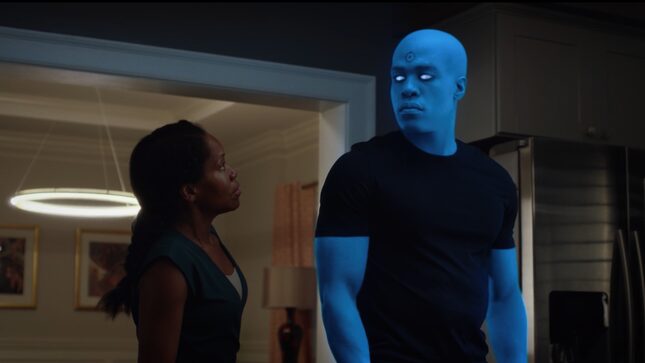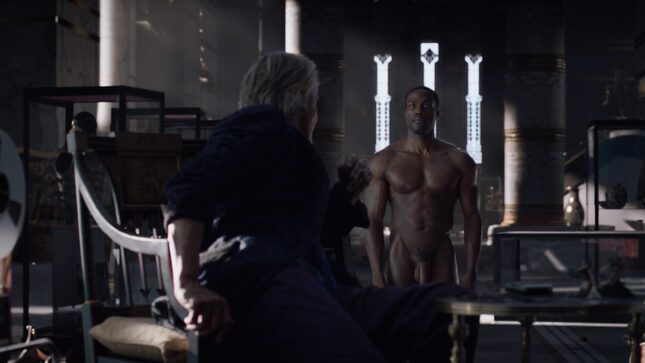

This review contains spoilers.
HBO’s Watchmen spent nine episodes of its first—and perhaps only—season meticulously building the terrors of white supremacy into the backbone of its story. This is a show that kicked off with a graphic retelling of the 1921 Tulsa race riot; it showed viewers where it stood from the jump, before segueing into the double life of retired cop and masked vigilante Angela Abar (Regina King), who’s helping the Tulsa police force to crack down on a group of white supremacist terrorists called the Seventh Kalvary. Twists and turns (and nutty B-plots featuring an absolutely wild Jeremy Irons as Adrian Veidt, aka. Ozymandias) ensued, many of which made it hard to sit through a single episode without uttering, “Wait, what the fuck?” at least twice. Nonetheless, the show’s politics drew praise, while racists petulantly review-bombed the show en masse.
One of the biggest twists came at the end of Episode 7 when viewers discovered that Angela’s unassuming husband, Cal Abar (Yahya Abdul-Mateen II), is actually Jon Osterman, aka. Dr. Manhattan. Ten years prior, when Dr. Manhattan first met Angela, he mimicked the form of a miscellaneous cadaver of Angela’s choosing so he could look a lot less blue and a lot more human. They also figured out a way to alter his memory so that his past—his childhood as a German refugee during WWII, his career as a physicist and lab accident that turned him into the blue, godlike being he is in the first place, etc.—could be blocked. But when an emergency in the present day caused Angela to unceremoniously reverse the block (in the form of a hammer and a few good whacks to Cal’s head), Jon’s blue form emerged, while his physical traits were still Cal’s.
In other words, Dr. Manhattan—Jon Osterman—looked black. Perhaps 10 years of taking on the form of a random black guy will do that to a telekinetic, clairvoyant, godlike being. That was essentially the show’s throwaway reason for it, at least. I, for one, am not complaining that we got to see Abdul-Mateen master Dr. Manhattan’s signature monotone. And I’m certainly not opposed to seeing him walking around with his immaculate dick and Adonis-like bottom on full display for large swaths of Episode 8. Regarding Dr. Manhattan’s blackness, Abdul-Mateen told The Atlantic, “In a world where white supremacy is the antagonist of our story, it makes sense that a god is inhabited by a black man.” It’s hard to argue against this, and it proves that this casting wasn’t just a cynical representation grab bag.
-

-

-

-

-

-

-

-

-

-

-

-

-

-

-

-

-

-

-

-

-

-

-

-

-

-

-

-

-

-

-

-

-

-

-

-

-

-

-

-









































